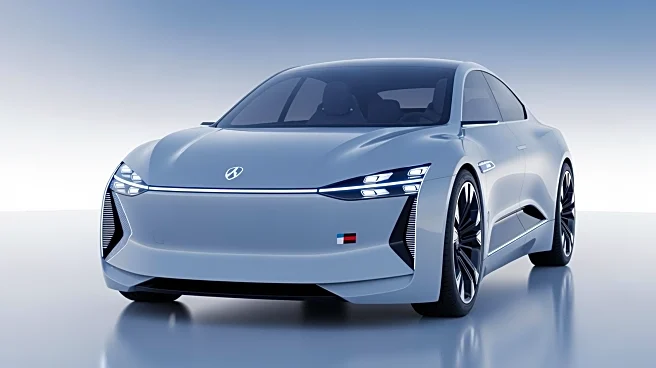What's Happening?
Brazilian President Luiz Inácio Lula da Silva has returned to the UN climate talks, known as COP30, in Belem, Brazil, with hopes of accelerating progress on critical climate issues. Despite his presence and that of UN Secretary-General António Guterres,
negotiators have yet to reach agreements on several key topics. Lula emphasized the need for a transition to renewable energies and reducing fossil fuel usage, while allowing countries to transition at their own pace with financial assistance. The talks have faced challenges in meeting deadlines, particularly on issues such as toughening climate plans, distributing $300 billion in pledged climate aid, and improving transparency in climate progress. A group of scientists criticized current proposals for a fossil fuel phaseout as inadequate, urging for a detailed roadmap to achieve zero fossil fuel emissions by 2045.
Why It's Important?
The outcome of COP30 is crucial for global efforts to combat climate change, as nations aim to limit future warming to 1.5 degrees Celsius, a goal set in the 2015 Paris Agreement. The discussions at COP30 could influence international climate policies and financial commitments, impacting both developed and developing countries. Brazil's push for a transition to renewable energies and the creation of a multibillion-dollar fund to preserve tropical forests highlights the importance of balancing economic growth with environmental sustainability. The talks also underscore the need for international cooperation and financial support to achieve climate goals, particularly for poorer nations that require assistance to transition away from fossil fuels.
What's Next?
Negotiators at COP30 are expected to continue discussions on the unresolved issues, with a focus on creating a roadmap for phasing out fossil fuels and enhancing climate plans. The conference aims to conclude with agreements that will guide future climate actions and financial commitments. Stakeholders, including governments, businesses, and civil society, will need to collaborate to implement the agreed-upon measures effectively. The success of COP30 could set a precedent for future climate talks and influence global climate policies, particularly in terms of financial aid and technological support for transitioning to renewable energies.
Beyond the Headlines
The discussions at COP30 highlight the ethical and economic challenges of transitioning to renewable energies, as countries balance their economic interests with environmental responsibilities. The creation of the Tropical Forests Forever Facility reflects a shift towards incentivizing environmental conservation through financial mechanisms. The talks also raise questions about the role of developed nations in providing climate finance to support global efforts, particularly for countries most vulnerable to climate change impacts. The ongoing negotiations emphasize the need for transparent reporting and accountability in climate actions, which are essential for building trust and ensuring effective implementation of climate agreements.
















